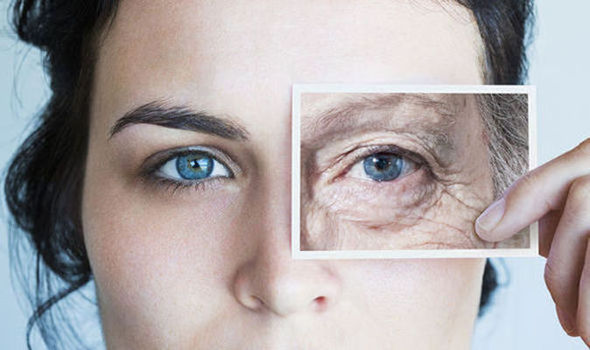Picture a society where 66 is the new 16.
想象一下,66岁还是碧玉年华。
Where your lifespan is double, even triple what it is now.
人均寿命是现在的两倍甚至三倍。
A world where you could watch science fiction become reality, where your body will never fail you.
一个科幻小说变成现实,人的肉身永远不会衰老的世界。
A world where age is really just a number.
一个年龄真的就只是数字的世界。
Labs all over the world are working to get to the bottom of longevity,
世界各地的实验室都在研究长寿背后的原因,
unlocking the secrets to extending our lifespans well into our 100s. And beyond.
试图解开将我们的寿命延长到一百好几十岁甚至更大的奥秘。
I think it's the greatest unsolved problem in biology.
这个问题应该算是生物学界有待解决的问题中最大的问题了。
So, how close are we to immortality?
那么,我们离长生不老究竟还有多远呢?
Okay, so, by definition, immortality means living forever, as in To Infinity.
根据定义,长生不老意思就是永远活着,就像《直到永远》里那样。
And mathematically, you never get any closer to infinity than when you started.
从数学上讲,你离无穷最接近的时候其实是一开始的时候。
So let’s just give up on technicalities and start with where we’re at today.
所以,我们不妨将这个问题的技术性先放一放,就从我们当下所处的位置开始说起。
The global life expectancy is currently hovering somewhere around 72 years.
当下,全球预期寿命在72岁左右。
It’s longer for women, shorter for men,
比较而言,女性比男性的寿命更长,
higher in developed countries, and lower in impoverished nations with poor sanitation, diets, and access to healthcare.
发达国家比卫生、饮食和医疗条件较差的贫困国家的寿命更长。
This all may seem like common sense so far,
上面所说的似乎都是些常识,
but it’s actually pretty striking when you consider how quickly things have changed.
但考虑到世界发展的速度,你会发现这些常识其实还是相当惊人的。
That's the crowning achievement of modern civilization:
这恰好也是现代文明的最高成就:
the fact that there are fewer and fewer people in this graveyard.
长眠在这个墓地里的人越来越少了。
Up until a couple of hundred years ago, life expectancy was about 30 in most populations.
直到几百年前,大多数地区的预期寿命都还停留在30岁左右。
But then, starting around 1840, life expectancy started to go up, and it gradually rose.
但从1840年左右开始,人类的预期寿命开始上升了,之后一直在逐步上升。
And today life expectancy in the country doing the best, is 87 years for Japanese women.
如今,日本女性的预期寿命已经达到了87岁,放眼全世界都算是领先的。
And thanks to accelerating medical, technological, and economic progress, experts think that trend will continue.
另一方面,多亏了医学、技术和经济的加速发展,专家们认为,这一趋势今后还会持续下去。
Plus, in our era of global information sharing, it’s much easier to get the word out about basic longevity hacks.
此外,在我们这个全球信息共享的时代,向大家传播基本的长寿秘诀要比以往容易得多。
So, don't smoke.
所以,请不要吸烟。
Don't drink too much, get exercise, get fresh air, eat a good diet, have friends.
不要酗酒,请多锻炼身体,呼吸新鲜空气,维持健康的饮食,多交朋友。
Live in a good environment with healthy air, clean water, where you can get good medical care.
生活在优质的环境里,生活在健康的空气,干净的水,还可以得到良好的医疗保健的地方。

Wait, so the secret to immortality is diet and exercise?
等等,这么说,长生不老的秘诀就是饮食和锻炼咯?
That can’t be right, can it?
不可能是这样的,对吧?
Well, some experts argue that those are really all the tools we have,
其实,一些专家认为,这些真的就是我们所有的办法了,
as we seem to be edging closer to the maximum possible length of a human lifespan.
因为我们似乎离人类寿命的最大极限已经越来越近了。
But I don't think the evidence for that is strong.
但我认为,这方面的证据并不充分。
That just means a healthy diet is only going to get you so far.
上述论点仅仅意味着健康的饮食只能让你活到目前你能活的岁数。
So scientists are looking to the natural world for clues on how to sidestep growing old.
但科学家们已经开始从自然界中寻找避免衰老的线索了。
Some even think that many of the ailments we call diseases could be thought of as symptoms of the most powerful disease of all--aging.
有些科学家甚至认为,许多被我们称之为疾病的问题其实可以被视为所有疾病中最强大的疾病——衰老的症状。
In fact, for some species, death rates actually go down with age.
事实上,有些物种的死亡率其实是会随着年龄的增长而下降的。
So, instead of getting sicker and sicker as you get older, you get healthier and healthier.
那些物种的生物非但不会随着年龄的增长而变得越来越虚弱,反而会变得越来越健康。
They tend to be species that keep on growing.
他们往往是那些会一直发育的物种。
And as they grow, they get bigger, they get new tissue, so they restore their health.
随着成长,它们的个头会越来越大,它们会生长出新的组织,借此恢复健康。
There are whales that live hundreds of years, and they're very similar to us genetically,
有些鲸能活几百岁,而它们的基因和我们的其实非常类似,
but we do need to be able to either change our genomes or find medicines and other ways to enhance our systems
但我们还是需要改变我们的基因组,或研发出能够提升我们的身体机能的药物或办法,
so that we have the same kind of lifespans that they do.
才能变得和它们一样长寿。
To do that, we’d have to stall or reverse the process of cell aging, called senescence.
为了实现这一目标,我们必须阻止或逆转细胞衰老,也即老化的进程。
Over time, cells lose their ability to replicate and function properly.
随着时间的推移,细胞会逐渐丧失正常复制和发挥其功能的能力。
But the problem is we really don’t know the whole story of what drives senescence.
但问题是,我们对老化并没有一个全面的了解。
We do know that it might be slowed by intermittent fasting, and a healthy diet.
不过,我们的确知道,间歇性禁食和健康的饮食是有可能减缓衰老的。
So what Dr. Sinclair is trying to do is reverse engineer that process on a molecular level.
辛克莱博士正在钻研的是如何在分子水平上逆转这一工程。
We found the first molecule that activated a group of enzymes that seem to control the benefits of being hungry and exercising.
我们率先发现了能够激活似乎控制着饥饿和锻炼的益处的一组酶的分子。
That molecule was resveratrol, found in foods like peanuts, pistachios, pomegranates, cranberries, grapes, and yes, red wine.
这个分子就是白藜芦醇,花生、开心果、石榴、蔓越莓、葡萄等食物,没错,还有红酒里都有这种醇。
We gave resveratrol to yeast cells, and little nematode worms, and to mice that were on a high fat Western or American diet.
我们给酵母细胞,小线虫,以及西方或美国式高脂肪饮食的老鼠喂了白藜芦醇。
And in all those cases, the animals were healthier and they lived longer.
结果,所有这些受试动物都变得更健康,寿命更长了。
And that was exciting because no one really had a safe molecule that extended the lifespan of organisms.
这一发现还挺振奋人心的,因为还没有人发现能延长生物体寿命还有安全保障的分子。
And that was the first one.
白藜芦醇算第一个。












